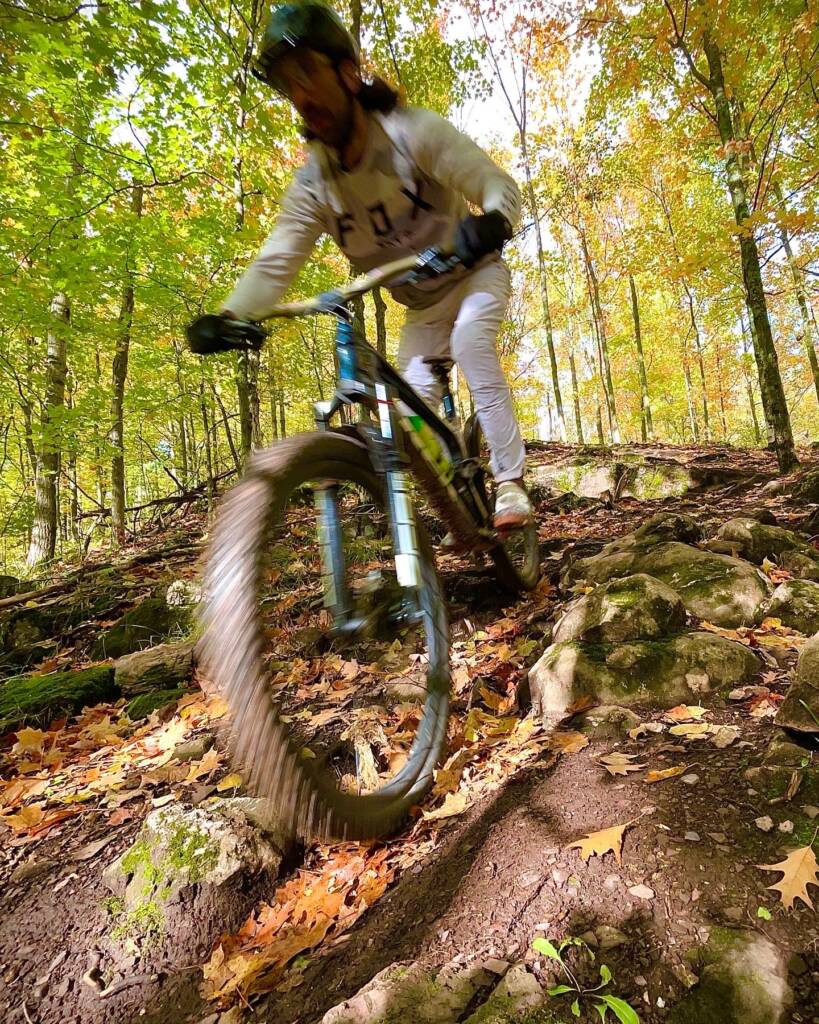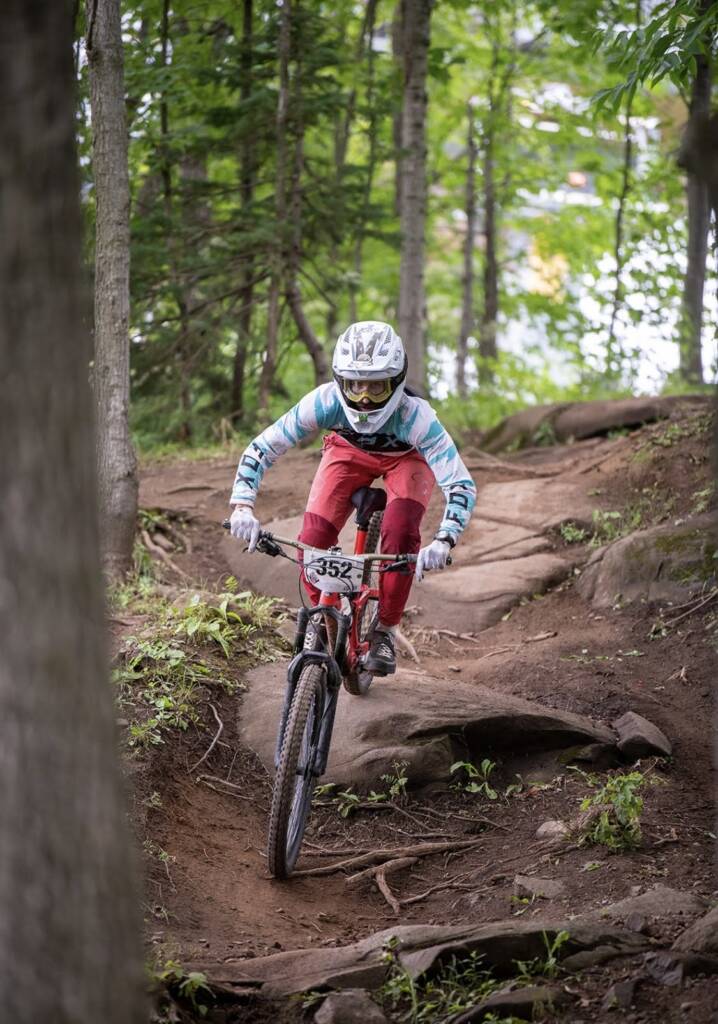Mountain biking is high-intensity and high-impact—especially with steep climbs, technical descents, and long days in the saddle. Smart recovery means you’re not just surviving the week, but getting stronger as you go. So to help you out, here is a week’s guide to better recovery.

Sample Week Plan: Intermediate to Advanced Rider (4–5 Ride Days)
| Day | Session Type | Recovery Focus |
|---|---|---|
| Monday | Rest or Light Mobility | – 30–60 min walk or yoga – Foam roll quads, calves, glutes – Eat for recovery (carbs + protein + hydration) |
| Tuesday | Endurance Ride (1–2 hrs, Zone 2) | – Eat a carb-rich meal post-ride – —Focus on hydration (electrolytes!) – 8+ hrs of sleep |
| Wednesday | Strength Training or HIIT Ride | – Protein target: 1.8–2.2g/kg – Mobility or contrast shower – Sleep hygiene: no screens 1hr before bed |
| Thursday | Technical Skill Session or Easy Ride | – Flush ride: Zone 1 – Massage gun or foam rolling – Nutrient-dense dinner (omega-3s, antioxidants) |
| Friday | Rest or Active Recovery | – Sauna, cold plunge, or walk – Focus on hydration + high-fiber foods |
| Saturday | Big Ride Day (3–4 hrs or DH laps) | – Fuel during ride: 60–90g carbs/hr – Recovery meal within 60 mins – Magnesium and tart cherry juice before bed |
| Sunday | Zone 2 Recovery Ride or Trail Spin | – Gentle movement only – Light mobility + foam rolling – Plan next week’s sessions |

Guide to better recovery:
- Sleep is your #1 recovery tool—track it like you track mileage.
- Hydration matters more than you think. Dehydration of just 2% body weight can impair endurance by 10–20%.
- Supplements to consider: magnesium (for muscle relaxation), omega-3s (anti-inflammatory), collagen + vitamin C (joint recovery), creatine (if strength training too).
Optimizing your recovery is just as important as pushing your limits in training. While structured plans provide a helpful framework, tuning in to your body’s signals is key to long-term progress and injury prevention. Overall, the best guide to better recovery is to listen to your body and to take this plan as an outline. So Remember, it’s hard to truly overtrain—but much easier to under-recover. Therefore Prioritize rest, nourish your body, and give yourself the space to recharge. Your future performance depends on it.

